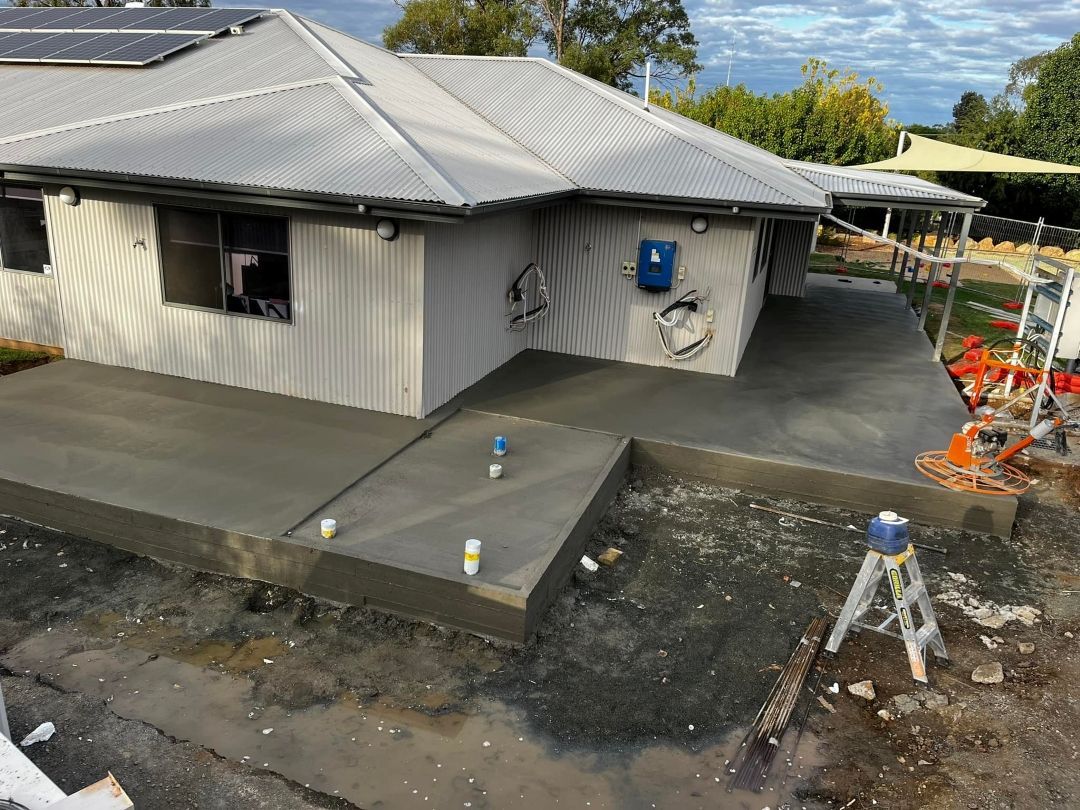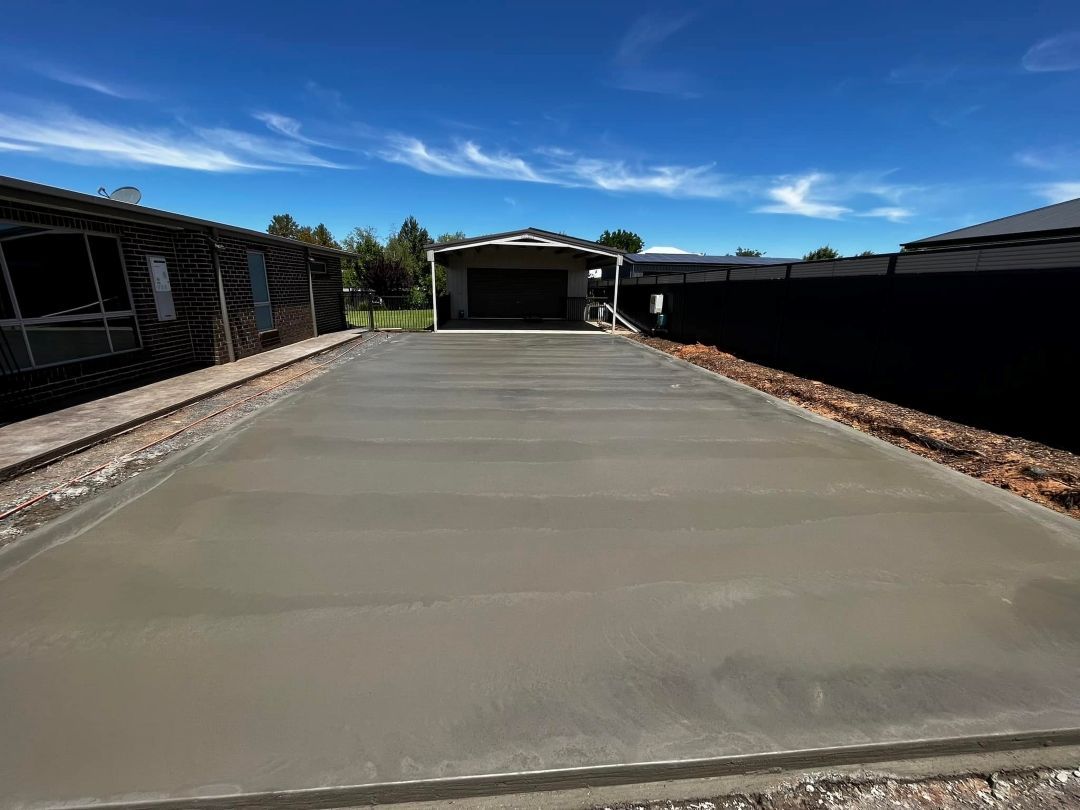Concreter in Singleton
- Concrete & Earthworks Specialists
- Servicing the Orana & Hunter Regions
- Projects of Every Size & Scope
Request a Call Back in Singleton
Thank you for contacting All Aspects Concreting & Earthworks Pty Ltd.
We will be in touch soon.
Please try again later.
Singleton Concreter
When you need a reliable concreter in Singleton, All Aspects Concreting & Earthworks is ready to deliver. We offer a full range of concreting services across residential, commercial, industrial, rural and civil projects, backed by expert earthworks and site preparation. From house slabs and driveways to heavy-duty rural infrastructure and commercial builds, we deliver strong, reliable results built for real conditions.
In a region where farming, mining and thoroughbred industries all thrive side-by-side, we’re proud to deliver concrete solutions that are tough enough to keep up. Our team understands the different demands of Singleton projects — from the heavy loads of mining equipment to the precision finishes needed for rural properties and horse studs.
- Residential, commercial, industrial, rural and civil concreting
- Full earthworks, trenching, excavation and site preparation services
When you want concreting services in Singleton that are built for serious work and long-term value, talk to All Aspects Concreting & Earthworks today on
0408 294 122.
Built Strong for Singleton
Singleton projects demand more than bare concrete — they need slabs, driveways and structures tough enough to handle real work. Whether it’s the weight of mining machinery, the demands of busy rural properties or the finish quality expected on thoroughbred estates, we deliver concreting solutions built for serious conditions. Every site we work on is different, but our commitment to strength, reliability and smart preparation stays the same.
We understand that in Singleton, projects often face tough ground conditions, tight build schedules and serious long-term wear. That’s why we approach every job with the right planning, machinery and workmanship to deliver lasting results.
- Heavy-duty concrete and earthworks for homes, farms and businesses
- Built for strength, finished for long-term value and durability
When you want concreting services that match Singleton’s strength, pride and hard-working reputation, talk to All Aspects Concreting & Earthworks today.
Frequently Asked Questions
How long before you can drive on a new concrete driveway?
Typically, you should wait at least seven days before driving light vehicles on a new concrete driveway. During this period, the concrete gains enough strength to support the weight without risk of cracking or surface damage. For heavier vehicles like trucks or caravans, a minimum of 28 days is recommended to allow the concrete to reach near full strength. Weather conditions, mix type and curing practices can influence exact timings. Proper curing during the first few days is critical to achieving a durable, long-lasting surface that can handle regular traffic.
How thick should a commercial concrete slab be?
The required thickness of a commercial concrete slab depends on the expected loads and usage. Standard commercial slabs are typically poured at a thickness of 150mm (15cm) with reinforced steel mesh or rebar. Heavier load areas, such as loading docks, warehouses or service yards, often require slabs 200mm thick or more, sometimes with double reinforcement. Proper subgrade preparation and jointing are critical to prevent cracking under the increased stresses. Consulting engineering specifications ensures the slab meets structural requirements, durability expectations and local building codes for commercial operations.
What is the difference between plain, reinforced and post-tensioned concrete?
Plain concrete relies solely on its natural compressive strength and is used where minimal tensile stress is expected. Reinforced concrete includes steel rebar or mesh embedded within the slab, helping it handle both compressive and tensile forces, making it suitable for slabs, beams and foundations. Post-tensioned concrete uses high-tension steel cables that are tensioned after the concrete cures, creating compressive stresses that increase load capacity and allow thinner slabs over longer spans. Each type is chosen based on project requirements for strength, flexibility and load-bearing needs.






